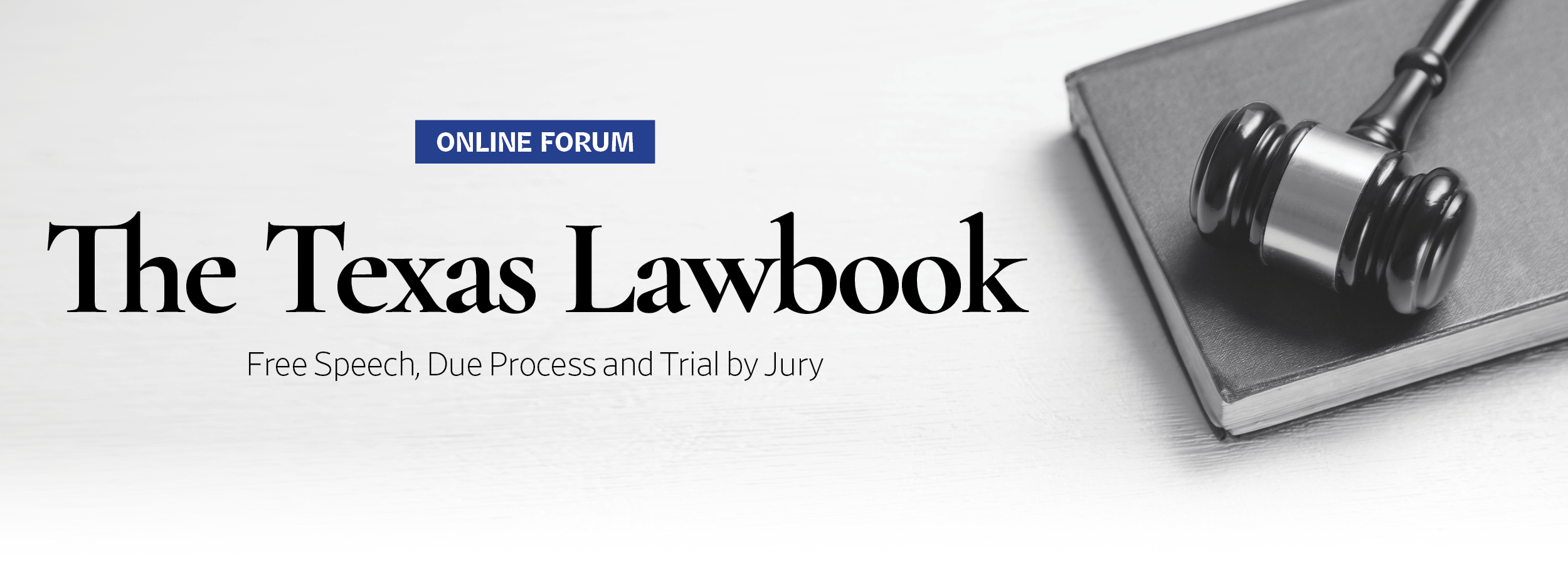Stating that their “abiding commitment to preserving the integrity of the American legal system leaves us no choice,” 504 law firms across the U.S. signed an amicus brief Friday supporting the corporate law firm Perkins Coie in its battle for survival against the Trump administration.
Of those 504 law firms supporting Perkins Coie, only nine are based in Texas and not a single law firm with a corporate transactional practice signed the brief.
“We view this as an important issue affecting our nation’s justice system, not as a political matter,” Paul Yetter told The Texas Lawbook Friday.
Yetter Coleman in Houston was one of the nine Texas firms. Others included Susman Godfrey, Graves Dougherty, Nachawati Law Group, Aldous Law, Crain Brogdon and Waters Kraus.
Majed Nachawati, of the Nachawati Law Group in Dallas, said he is stunned that more law firms declined to sign the amicus brief.
“The bigger corporate law firms believe if they sign the brief, they will become the target of Trump and his supporters and so they remain silent,” Nachawati said. “They are basically saying that making money is more important than doing what is right.”
None of the large corporate law firms in Texas signed the 10-page brief in defense of Perkins Coie, which was hit with an executive order by President Donald Trump on March 6 that prevents the law firm from representing clients in matters that involve the federal government and prohibits its lawyers from entering federal buildings.
The president has signed five executive orders targeting corporate law firms because they either presently or previously employed lawyers who were involved in investigations against President Trump. The law firms also had diversity recruiting and hiring policies that the president said violated laws banning discrimination and handled pro bono matters that included representing immigrants seeking asylum.
Some law firms, including Skadden Arps, which has a Texas office, decided to reach a settlement agreement by agreeing to review its diversity initiatives and do pro bono work that had the approval of President Trump.Other firms, such as Perkins Coie, which has offices in Austin and Dallas, filed lawsuits challenging the president’s executive orders as unconstitutional. Two different federal judges, both appointees of President George W. Bush, have issued temporary restraining orders prohibiting key parts of the EOs from being enforced.

How Should Lawyers, Firms and GCs
Respond to President Trump’s Challenges?
In the amicus brief, the 504 law firms argue that the executive orders undermine the right of people and companies to legal representation.
“Without such zealous advocacy, there is no prospect of equal justice under law,” the brief states. “On the basis of almost-decade-old allegations, the Executive Order subjects an entire firm, as well as its clients and personnel, to draconian punishment — including the revocation of its attorneys’ security clearances, the potential loss of clients that contract with the United States, and denial of access to federal buildings and facilities. Such disabilities would threaten the survival of any law firm.”
The brief states that President Trump’s executive orders pose a “looming threat” to any lawyers or law firms that dare to tackle “any controversial representation challenging actions of the current administration (or even causes it disfavors) now brings with it the risk of devastating retaliation.”
“Whatever short-term advantage an administration may gain from exercising power in this way, the rule of law cannot long endure in the climate of fear that such actions create,” the brief states. “Our adversarial system depends upon zealous advocates litigating each side of a case with equal vigor; that is how impartial judges arrive at just, informed decisions that vindicate the rule of law.”
In his executive orders and statements to the news media, President Trump has criticized the law firms for representing individuals and causes that “make our communities less safe, increase burdens on local businesses, limit constitutional freedoms, and degrade the quality of American elections.”In addition to the law firms, 346 former judges signed a separate amicus brief arguing that the presidential Eos undermine the rule of law. Only five of the 346 former judges are from Texas. They include retired Judge Elsa Alcala of the Texas Court of Criminal Appeals and four retired judges from the Texas Thirteenth Court of Appeals — former Justice Gina Benavides, former Chief Justice Dori Contreras, former Justice Nelda Rodriguez, and former Justice Reyna Yáñez.
Related Coverage
- Texas Law Professors Join Amicus Brief in Support of Perkins Coie Challenge to Trump Executive Order
- Texas AG Sends Piggyback Demands to Law Firms on DEI Info
- Texas Lawyers Stay Silent on Trump’s Targeting More Law Firms
- Paul Weiss: Competitor Law Firms Came for Our Clients, Not to Help Us
- EEOC Targets 13 Law Firms Operating in Texas for DEI Initiatives
